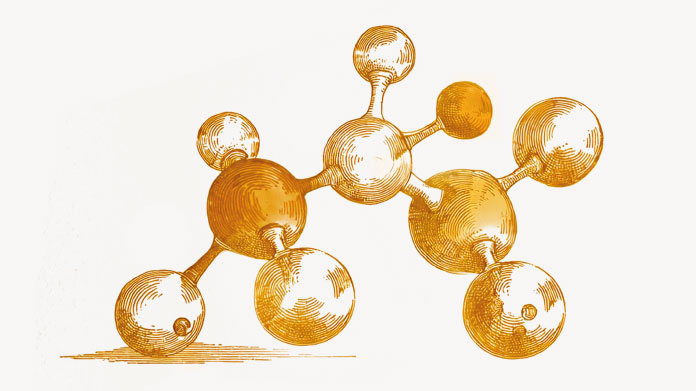Lack of energy: what should you eat if you’re always feeling tired?
Many people complain of always feeling tired and lacking in energy. Here’s a list of anti-fatigue foods to help restore your vitality.

Foods rich in vitamin C
Ascorbic acid, better known as vitamin C, is essential for maintaining good health and is recognised as a powerful antioxidant. But it’s also an important vitamin for staying in top form as it plays a role in (1):
- reducing fatigue;
- normal immune system function;
- normal nervous system function;
- normal energy metabolism;
If you experience constant fatigue, it’s therefore important to eat plenty of vitamin C-rich foods. And while the best-known of these are probably the citrus fruits, other foods contain much more ascorbic acid than, say, a standard orange:
- kiwi fruit;
- acerola cherries;
- peppers;
- blackcurrants;
- parsley;
You could also opt for a vitamin C supplement such as Liposomal Vitamin C.
Foods rich in vitamin D
Calciferol, better known as vitamin D (primarily D2 or D3) is also essential for health, especially that of our muscles and bones. Yet according to France’s National Academy of Medicine (2), many people are deficient in vitamin D (80% of the French population, for example). Such deficiency primarily manifests in chronic fatigue.
Eating more of these vitamin D-rich foods will thus help combat fatigue (3):
- oily fish (salmon, mackerel, sardines, etc.) ;
- dairy products;
- oysters;
- mushrooms;
- le foie gras;
- le calves’ liver;
However, as the National Academy of Medicine points out, Western diets rarely provide sufficient daily vitamin D so it’s a good idea to supplement with vitamin D3.
Foods rich in vitamin B9
Vitamin B9, or folic acid (well-known to pregnant women),is provided by the diet in the form of polyglutamates, also called folates.
Vitamin B9 is essential for cell multiplication, gene regulation, and the formation of red and white blood cells. And since it’s impossible to overdose on B9, increasing your intake may be a sensible move since it helps, in particular, to reduce fatigue(4).
Vitamin B9 is predominantly found in the following foods:
- brewer’s yeast;
- liver;
- asparagus;
- oranges ;
- pulses;
- dark green leafy vegetables such as cabbage, rocket, lamb’s lettuce, chard, spinach, etc.
It’s important to note, however, that some of these foods can produce unwelcome side-effects when consumed in large quantities. Brewer’s yeast and cabbage cause unpleasant flatulence while chard and spinach may encourage the return of kidney stones in those who have suffered from them before.
To avoid such risks, you could instead take a course of vitamin B9 supplements, such as SuperFolate.
Foods high in iron
According to the World Health Organization, more than 30% of the global population is anaemic, yet iron, like many other micronutrients, is essential for good health. Involved in producing haemoglobin and myoglobin, iron plays a role in (5):
- reducing fatigue;
- normal energy metabolism;
- normal cognitive function;
An iron-rich diet is therefore important for preventing anaemia, particularly in certain groups (children, teenagers, women of child-bearing age, pregnant women, nursing mothers, high-level sportspeople), as well as vegetarians and vegans.
In fact, the body absorbs iron from plant sources five times less efficiently than that from animal sources. It’s worth noting here that supplementing with vitamin C can potentially compensate for this by promoting the absorption of iron. Here are some iron-rich foods:
- offal;
- red meat ;
- poultry ;
- fish ;
- sea food ;
- pulses ;
- dried fruit ;
- nuts and seeds ;
- spirulina ;
But if your diet fails to provide an adequate intake, you can, after consulting your doctor, correct a confirmed iron deficiency with supplementation, for example, Iron Bisglycinate.
Foods rich in magnesium
Involved in energy production at a cellular level, the mineral salt magnesium is essential for the body to function properly. The first signs of magnesium deficiency are persistent fatigue, headaches, stomach aches and cramps.
The best dietary sources of magnesium are:
- green vegetables;
- brewer’s yeast;
- whole grains;
- oilseeds;
- pulses;
- chocolate;
- magnesium-rich mineral water;
And here again, you can ensure your magnesium needs are met by taking a dietary supplements such as OptiMag.
To conclude then, you need to eat a varied, balanced diet, incorporating all types of food – fresh fruits, vegetables, whole grains, pulses, oilseeds, meat, fish, etc. if you want to be in top form and feel less tired. Dietary supplements can also offer support in helping you recapture your lost vim and vigour.
References
- EU Register on nutrition and health claims, EFSA, 10/2015
- Acad. Natle Méd., 2012, 196, nos 4-5, 1011-1015, séance du 15 mai 2012
- EU Register on nutrition and health claims, EFSA, 08/2016
- EU Register on nutrition and health claims, EFSA, 03/2015
- EU Register on nutrition and health claims, EFSA, 2014
Keywords
5 Hours
Great products
Great products, great service, great sales team. They are an excellent company, staffed by wonderful people. Go France
HARDY Chris
1 Days
Quick delivery
Quick delivery
Caroline Saelens
1 Days
High quality
In my experience the products will not disappoint you.
Fred Laan
4 Days
Super smart is really…super !
I would like to share my excellent experience with the company’s fast and efficient customer service. Even though I was calling from abroad, I was able to reach them relatively quickly. They responded to all my emails promptly and kept me consistently informed about the status of my order. When I needed assistance correcting a mistake I had made with my order, Ms. Lorie handled the issue immediately and very professionally. Thanks to their support and efficiency, I received my Super Smart products in Greece much faster than expected. Thank you very much for the outstanding service!
Kazanti Kleopatra
7 Days
Ordering and delivery is easy and fast
Ordering and delivery is easy and fast
Peter
9 Days
Simple and quick :-)
My order was delivered quickly, and I'm satisfied with the product! It was lot less fuss compared with some things I've ordered.
DEL Jacqueline
9 Days
Excellent quality products & customer…
Excellent quality products & customer service & care …thank you!
Giovanna Escalera
11 Days
great experience
Easy ordering, fast deliver, very professionally.
Natasa
14 Days
this company and its products are…
this company and its products are perfect: I have been their customer for three years , prices are reasonable for the high quality they offer , the products are of very good quality not just plainly "normal" , delivery is quite fast. we are very satisfied with them.
Gabriel Diacakis
15 Days
TOP service TOP products will buy again…
TOP service TOP products will buy again and again
PINOTTI Giorgio
17 Days
Trustworthy company with tested products
Trustworthy company with tested products
Trusted
21 Days
Efficiency and speed
Efficiency and speed
Cuccie
23 Days
GOOD BRAND IN FOOD COMPLEMENTS
GOOD BRAND IN FOOD COMPLEMENTS - SERIOUS WITH GOOD DOCUMENTS AND DETAILS SCIENTIST. AND SERIOUS HONNEST COMMERZIALISATION. I HAVE TRUST IN THEIR PRODUCTS.
FENOGLIO Guy
24 Days
Very good experience
Very good experience, the products arrived in time, in perfect condition and are good quality. Thank you.
GABI TIRCOCI
30 Days
very good expereince
very good expereince
Jelena Đaković
of experience
your money back
##montant## purchase




